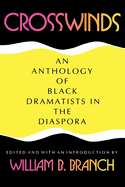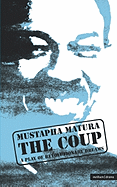Remembering Playwrights William Branch and Mustapha Matura
In the last quarter of 2019, the world lost two great playwrights, William Branch and Mustapha Matura. Both playwrights left a lasting impression on audiences in two different countries on two different continents: for Branch, it was the U.S., and for Matura, it was London and the U.S. Both men were prolific award winning dramatists who used their craft to portray the contours, complexity and tensions of the lives of people in the African diaspora.
William Branch
Branch was born in 1927, and as a youngster his interests included performing and writing. During his first year as a student at Northwestern University in Illinois in the mid 1940s, he crossed paths with African American actor and activist Canada Lee, who at the time was appearing in a touring production of the drama Anna Lucasta. Written by Phillip Yordan, Anna Lucasta, was a breakout hit for the American Negro Theatre (ANT) and first produced in the basement at the Schomburg Center’s original home, the 135th St. Library during ANT’s five year residence in the library. The play transferred to Broadway and was one of the longest running plays with an all Black cast to be produced on Broadway and it later toured the country and Europe.

New Journal and Guide
October 27, 1951, p. A22
ProQuest Historical African American Newspapers
Branch’s encounter with Lee resulted in Branch auditioning for and becoming an understudy for the Chicago run of Anna Lucasta. Upon finishing college, Branch relocated to Harlem where he embarked on a career as an actor and appeared in the 1950s TV program Treasury Men in Action. Like some of his peers, including ANT member Alice Childress, Branch also grew frustrated by the lack of opportunities for Black actors, and turned to playwriting.
According to his New York Times obituary, Branch was inspired to write his satire, A Medal For Willie after reading a newspaper article about a three-starred general who delivered a posthumous award for bravery to the mother of an African American soldier. The play would go on to be staged with meager resources in 1951 at a cabaret venue in Harlem by the Committee for the Negro in the Arts, an organization that boasted members including African American artists and activists Harry Belafonte, Paul Robeson and others, whose mission was to advocate for African American perfomers and writers to assist them with gaining visibility and opportunties in the entertainment industry. Right after his play opened, Branch was drafted into the army where he served in the Korean War.

"A Medal For Willie"
"A Medal For Willie" Theater Stills Collection
NYPL Schomburg Center For Research in Black Culture, Photographs and Prints Division
Photographer: J.A. Harrison
Branch’s other plays which were produced Off-Broadway and regionally include the 19th century set abolitionist themed drama In Splendid Error, and he wrote an adaptation of the Peter Abrahams book A Wreath for Udomo for the stage. Branch authored works for the radio and TV including Light in the Southern Sky, about the life of Dr. Mary McLeod Bethune which aired on NBC in 1958.
Teaming up with ANT alumni would be a recurring theme throughout Branch’s career as he would collaborate with ANT actor turned filmmaker and producer William Greaves for the 1968 documentary Still a Brother: Inside the Black Middle Class, which was narrated by ANT alum Ossie Davis and presented as part the TV series NET Journal which was broadcast on the public TV network National Education Television (the forerunner of today's PBS). Also, in the 1980s, Ossie Davis and his wife Ruby Dee, who were also ANT alumni (and their personal papers are housed in the Schomburg’s Center’s Manuscripts, Archives and Rare Books Division) commissioned him to pen the teleplay for Letter from Booker T. The film starred Davis as Robert Terrell, the first African American district judge in Washington D.C., and his wife Mary Church Terrell, an activist and suffragette, portrayed by Dee, aired on PBS in the 1980s.
Branch wrote the screenplay for the 1970s Blaxploitation era film Black Cream (also called Together For Days) featuring Clifton Davis, Lois Chiles and an appearance by Samuel Jackson in his formative years. Branch edited anthologies including Black Thunder: An Anthology of Contemporary African American Drama and Crosswinds: An Anthology of Black Dramatist in the Diaspora and he also shared his experiential knowledge as an educator at East Coast universities including Yale and William Paterson University. Branch died in November 2019 at the age of 92.
Mustapha Matura
Born as Noel Matura in 1939 in Port of Spain, Trinidad to a South Asian father and a mother who was of African and European descent, Matura left school as a teenager but was an avid reader and worked a series of jobs in his native Trinidad before immigrating to London in 1961.
In an interview that was published in Visions and Voices: Interviews with Caribbean Playwrights, Matura explained that he was influenced by Caribbean anti-colonial theorist Frantz Fanon and the Black Power and the anti-colonial movements that were unfolding in the U.S. and the Caribbean and Africa, respectively. These events and finding pride in a black consciousness that emerged compelled him to express himself through dramatic writing. During this era he changed his first name to Mustapha.
Through his writings Matura explored the effects of colonialism on Caribbeans and he insisted on writing in dialect stating, “I always write in dialect which was another act of revolution. I was asserting our language and that was another part of the revolution” (emphasis his). Matura’s early work includes Black Pieces and As Time Goes By, the latter of which transferred to London’s Royal Court Theatre in 1971. The Royal Court is also where Matura’s Trinidad work Play Mas about Trinidad carnival culture was produced. The play transferred to London’s West End theater district and Matura is one of the first Black playwrights who holds the distinction of being produced in the West End. Play Mas received its New York City premiere in the mid 1970s by Urban Arts Corps Theatre which was founded by theater artist Vinnette Carrol (and the archival papers of this company are kept in the Schomburg Center’s Manuscripts, Archives and Rare Books Division).
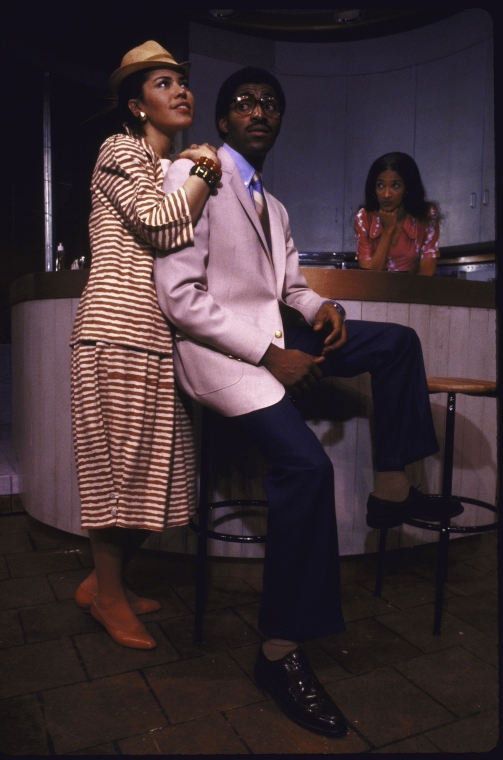
Seizing the opportunity to provide a platform for more Black theater artists in London, Matura founded the group Black Theater Co-Operative (and is now known as nitroBEAT) in 1978 in collaboration with Charlie Hudson. The mid 1970s through 1980s proved to be creatively fertile time for Matura which is when he wrote the plays Welcome Home Jocko, Rum an’ Coca Cola, Nice and Meetings which were produced in London, New York City and on the regional theater circuit.
As William Branch ventured into writing for TV and film, Matura found financial success writing for the 1980s British TV program No Problem! which centered on the lives of Black Britons and Matura followed up writing for this show by working on the series Black Silk.
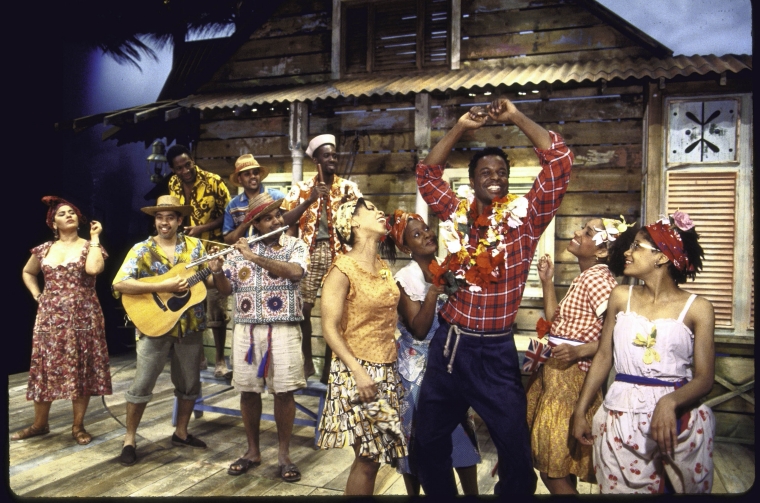
Matura adaptation of Chekov’s Three Sisters, called Trinidad Sisters (which was later published as Three Sisters: After Chekov) debuted stateside in the early 1990s. Matura set his version of the play in Trinidad during the Second World War. Read about Matura's adaptation in an article spotlighting Matura's career and life that was published in American Theatre here. Another of Matura’s most popular adaptations was of J.M. Synge’s The Playboy of the Western World. Matura’s adaptation, titled Playboy of the West Indies, transplanted Synge’s story from Ireland in the early 1900s to 1950’s Trinidad. Images taken from Lincoln Center Theater’s 1993 production of Playboy of the West Indies are available via NYPL’s Digital Collections.
Matura died in October 2019 at age 79 years old.
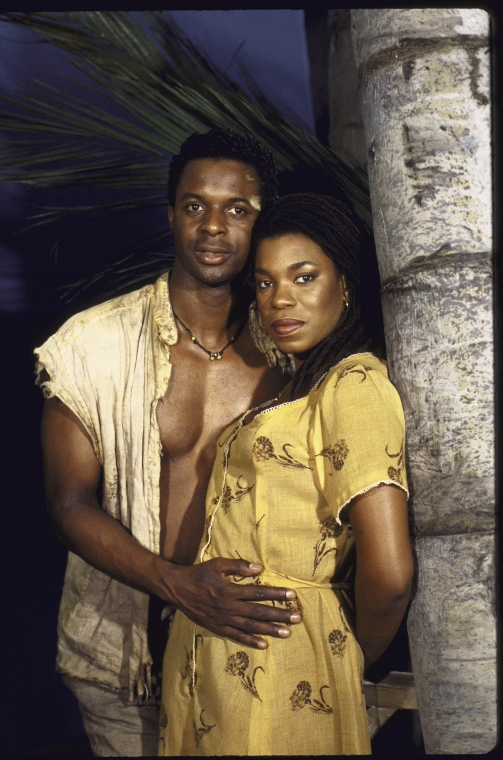
Selected Works by William Branch
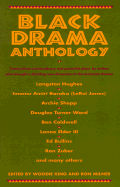
A Medal For Willie is included in Black Drama Anthology and a reproduction of the manuscript version of the play is also available here.

In Splendid Error was published in the anthology Black Theater U.S.A.: Fourty-Five Plays by Black Americans 1874-1974. The play is also available as a stand alone publication here.
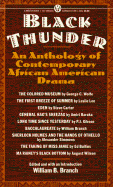
Black Thunder: An Anthology of Contemporary African American Drama includes Branch's play Baccalaureate
Selected Works by Mustapha Matura
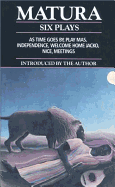
Read E-Books with SimplyE
 With your library card, it's easier than ever to choose from more than 300,000 e-books on SimplyE, The New York Public Library's free e-reader app. Gain access to digital resources for all ages, including e-books, audiobooks, databases, and more.
With your library card, it's easier than ever to choose from more than 300,000 e-books on SimplyE, The New York Public Library's free e-reader app. Gain access to digital resources for all ages, including e-books, audiobooks, databases, and more.
If you don’t have an NYPL library card, New York State residents can apply for a digital card online or through SimplyE (available on the App Store or Google Play).
Need more help? Read our guide to using SimplyE.
